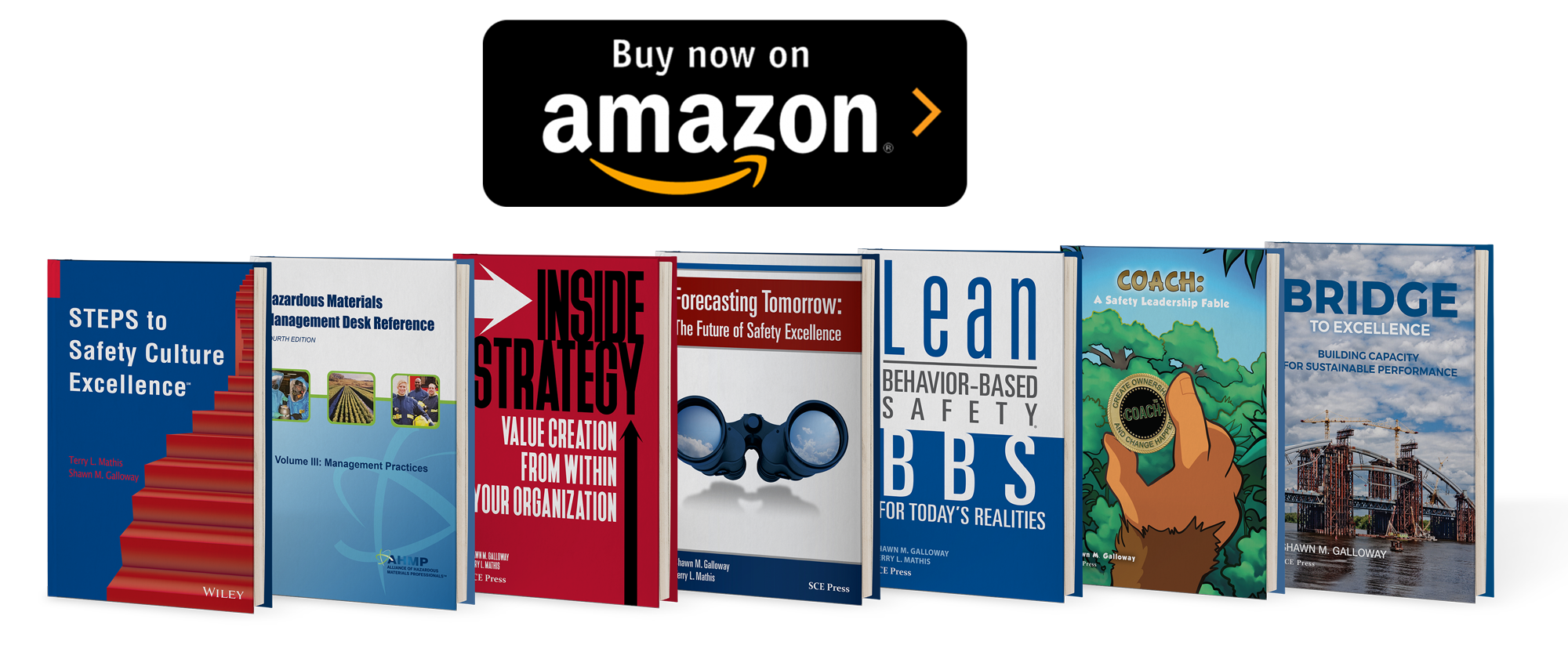BIC - December 2013
By: Shawn M. Galloway
Printable Version
Can your employees follow all the procedures, wear all the personal protective equipment (PPE), obey all the rules and still get injured? Of course. This is why effective leaders identify the need to influence employees to do more than what is required.
Companies expect adherence to rules, policies and procedures. If the employee doesn't comply, it is, unfortunately, common to administer disciplinary measures. Discipline, however, rarely motivates an individual to want to do more.
What is the average level of performance you receive from your employees on a scale of one to 10? Ten represents a superstar performer who always goes above and beyond. Five represents someone who does the minimum necessary (i.e., behavior expected to remain employed). A one is someone who isn't even showing up for work. What would you rank the average level of performance in your work group, team or company?
Certainly there are some who might fall below expectations and there are those who have the internal drive to do more. But what works to motivate one person's discretionary effort is not guaranteed to positively influence another. Incentives often backfire and rewards are hardly frequent or appealing enough. Motivation isn't that simple.
What tools and approaches do you use to tap into employee potential to do more than what is expected by government regulation and company policy? Most successful companies utilize performance coaching to transform their supervisors, who have the most direct impact on employee behavior, from policing for compliance to coaching for performance.
To effectively coach for performance, four basic questions must be answered:
1. What do you want the person to do? This needs to be defined in behavioral terms, not results. Rather than suggesting someone to "be safe," what precisely do they need to do to be safe? Similarly, if you want an engaged work force culture, what would you see them do or hear them say that suggests they are engaged?
2. How do you communicate it to them? Effective communication has two roles, senders and receivers, and both need to be turned on and tuned into the message. Sending signals is almost pointless if there is no validation the message was received. How will you get the desired behavioral expectations out of your head and into the heads of the receivers?
3. What happens if they do what you would like them to do? Most companies have progressive discipline policies and approaches, but few have progressive recognition. How will you ensure an increase in positive consequences and positive reinforcement when people continue to go above and beyond?
4. What happens if they don't do what you would like them to do? Negative consequences are designed to stop specific behavior, not start it. Sure, negative consequences may prompt behavior, but not always the desired ones. Punishing employees for not wearing their required PPE doesn't guarantee they will comply. The behavioral change might result in the punished employee keeping a lookout for the enforcer, rather than always wearing the PPE.
Policing safety has proven to be a less-than-perfect method of improving injury performance and often promotes under-reporting. Becoming an effective coach with answers to these important questions can leverage a manager's or supervisor's influence to make significant gains in both injury reduction and the safety aspect of company culture. Coaching skills improve all areas of performance, not just safety but also quality and productivity. The benefits to the organization impact almost every area of human performance and are one of the most effective tools to move the culture from have-to to want-to thinking.
 Shawn M. Galloway is the CEO of ProAct Safety and co-author of several bestselling books. As an award-winning consultant, adviser, leadership coach and keynote speaker, he has helped hundreds of organizations within every major industry to improve safety strategy, culture, leadership and engagement. He is also the host of the highly acclaimed weekly podcast series Safety Culture Excellence®.
Shawn M. Galloway is the CEO of ProAct Safety and co-author of several bestselling books. As an award-winning consultant, adviser, leadership coach and keynote speaker, he has helped hundreds of organizations within every major industry to improve safety strategy, culture, leadership and engagement. He is also the host of the highly acclaimed weekly podcast series Safety Culture Excellence®.
For more information, call (936) 273-8700 or email info@ProActSafety.com.
